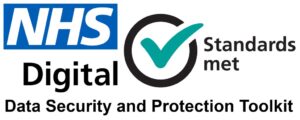Career pathways
The pathway to becoming a clinical neurophysiologist, includes completing an undergraduate degree, medical school, and postgraduate medical education, usually in neurology. Following the completion of an accredited residency program, clinicians may choose to enter a fellowship in Clinical Neurophysiology.
Career pathways
In the United Kingdom:
In the United Kingdom, there are two healthcare professionals who typically perform
neurophysiological investigations in the UK. These are medical staff trained in Clinical Neurophysiology, after completing 2 years Foundation Years training (FY1-2), 2 years of Core Medical training (ST 1-2), enter a 4-year Clinical Neurophysiology Specialist Training (ST4) program and are qualified as having obtained “Completion of Certificate Training (CCT) in Clinical Neurophysiology”.
The other is non-physician route, “Clinical Physiologists” (also known as Neurophysiology Technologists in the USA) who undertake four years of practical training whilst undertaking an honours degree. Physiologists perform the majority of EEGs, evoked potentials and nerve conduction studies, which are reported by or under supervision of Clinical Neurophysiologists (consultants).
Relationship to Electrodiagnostic Medicine:
Electrodiagnostic medicine is a subset of Clinical Neurophysiology. Electrodiagnostic medicine focuses only on the peripheral nervous system and not the central nervous system. Whereas a Clinical Neurophysiologist is trained to perform, interpret and report on all the following studies: EEG, intraoperative monitoring, nerve conduction studies, EMG and evoked potentials, an electrodiagnostic physician focuses mainly on nerve conduction studies, needle EMG examination and neuromuscular ultrasound as part of neuromuscular workup.
Training Requirements
“There are two main types of careers in Clinical Neurophysiology in the UK, One via a medical route and one via a scientific route. For doctors contemplating a career in the discipline the Royal College of Physicians summary page on training may be useful, also the syllabus for medical trainees in clinical neurophysiology and entry requirements.
The second main career pathway in the speciality is that of neurophysiological scientist, a clinical measurement discipline. Some details regarding this career can be found via the following links:
The Association of Neurophysiological Scientists
NHS Health Careers
Get in Touch
![]() 07354 364980
07354 364980
Excellence in Clinical Neurophysiology




© 2020 – 2025 NeurophysCare | All rights reserved | Design by: Active Biz.


